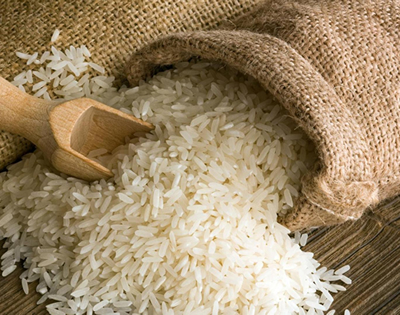Consider CRI rice varieties for PFJ programme – Investigator
 The Crops Research Institute (CRI) of the Council for Scientific and Industrial Research has appealed to the government to give priority to rice varieties being developed under its Korea-Africa Food and Agriculture Cooperation Initiative (KAFACI).
The Crops Research Institute (CRI) of the Council for Scientific and Industrial Research has appealed to the government to give priority to rice varieties being developed under its Korea-Africa Food and Agriculture Cooperation Initiative (KAFACI).
Dr Paul Kofi Dartey, Principal Investigator for the Initiative, said the improved rice varieties developed could be adopted under the Planting for Food and Jobs (PFJ) programme for cultivation by farmers to improve food security and their incomes.
This is due to its high-yielding, disease-resistant and nutritious qualities.
Dr Dartey, who was speaking to the Ghana News Agency (GNA), on the sidelines of a workshop of the KAFACI at Fumesua in the Ejisu Municipality of the Ashanti Region, said the agronomic importance of encouraging Ghanaians to plant and use high quality rice developed locally could not be glossed over.
It is estimated that the nation imports over US$300 million worth of rice annually.
The two-day workshop dubbed ‘Enhancement of National Agricultural Extension Services (ENAES) Phase II’, brought together participants, including agricultural researchers and scientists from Ghana, Gabon, Ethiopia, Malawi, Senegal and Zimbabwe.
The objective was to discuss progress of the Initiative, brainstorm and find appropriate ways of disseminating quality rice varieties unto the market to reduce rice importation.
Dr Dartey, giving an overview of the Initiative, said the project had established three demonstration fields in three districts – Kadjebi, Biakoye and Hohoe, adding that so far, some small-holder farmer groups from Jasikan and three from Hohoe had requested for seeds after being linked.
Additionally, 23 farmers from the Dzidefo Farmers’ Group also tested three rice varieties under KAFACI, while some varieties were further test-milled at the Food Research Institute.
Dr Kim Jeong Jun, Executive-Secretary of the KAFACI, gave the assurance that the South Korean government was committed to assisting Ghana to make the most out of agriculture through research and technology.
He was optimistic the KAFACI project would expose farmers to improved rice varieties for cultivation to improve yield and incomes.
Source: GNA
